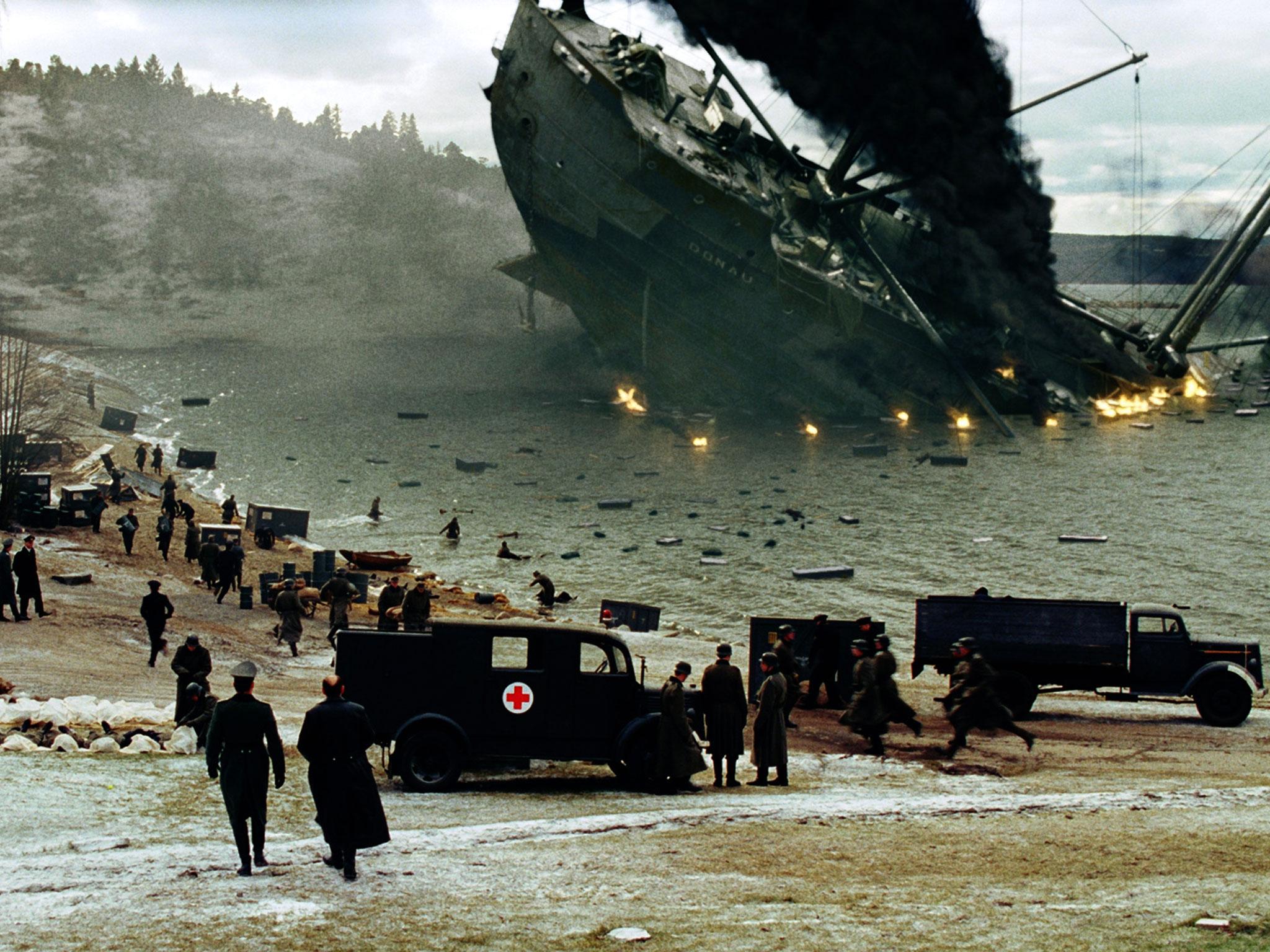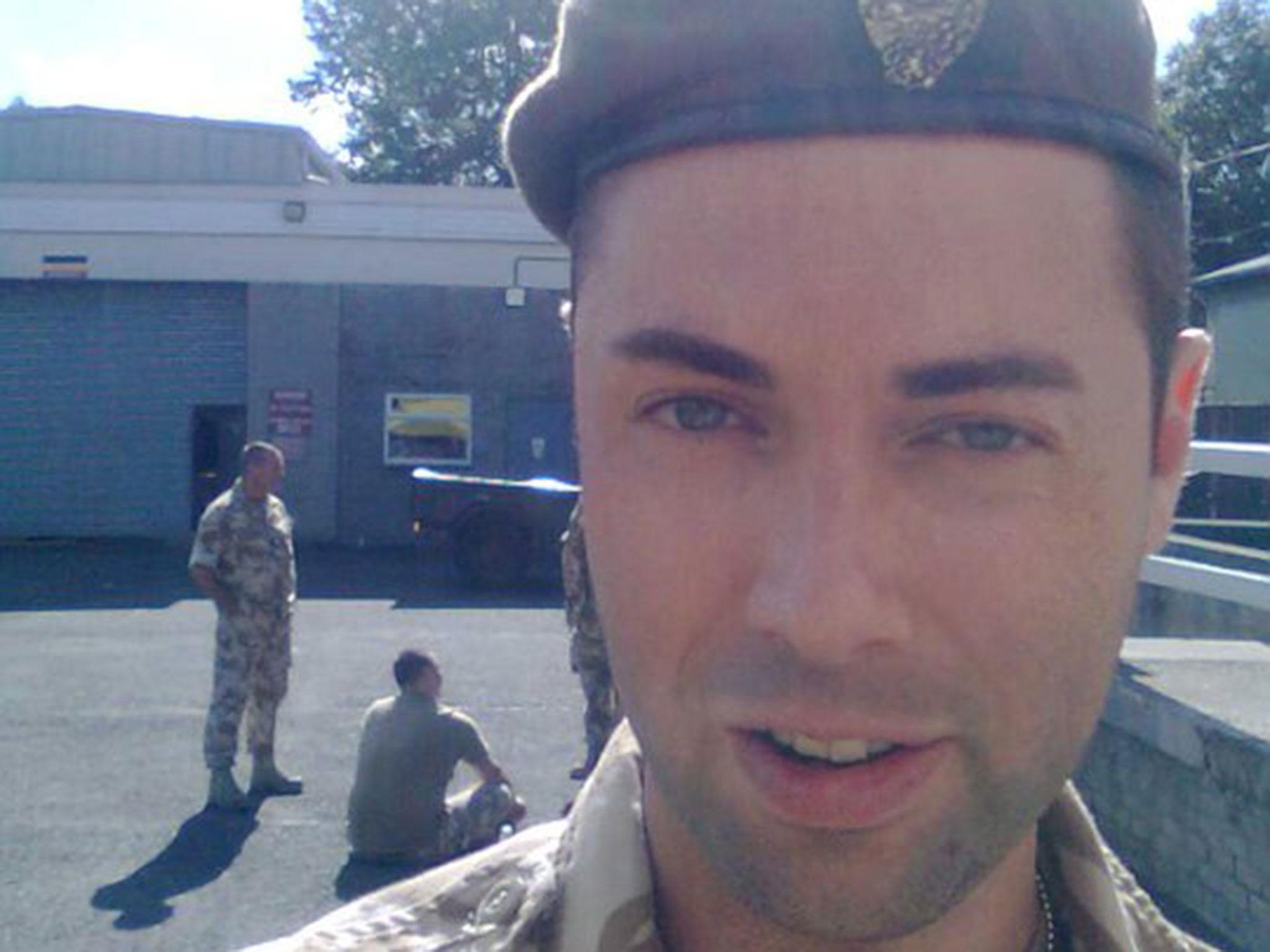My non-speaking part in the wars
A job on a film led a gap-year kid to ‘extras boot camp’: a meeting in that make-believe world changed his life forever

The atmosphere in the back of truck was one of nervous anticipation as it rumbled along the rough, potholed road, the suspension groaning with each bump, the rough old engine roaring with power. Around me, men in uniform sat in tense silence, gripping weapons in sweating hands. This was what we'd trained for.
With a squeal of brakes and the crunch of dirt and gravel, the big truck skidded to a halt and the backboard swung down.
"Out!"
Men hoisted weapons, jumped to their feet and piled towards the exit. I watched as the first man gathered himself up to leap down – and promptly tripped over the still-swinging backboard, landing face first on the gravel below. The rapid, orderly deployment quickly turned into dangerous chaos, with men trying to twist and leap to avoid their hapless comrade, many losing their balance as heavy equipment and weapons dragged them down.
It was fair to say we were pretty much the sorriest group of soldiers ever to lace up a pair of boots.
"Cut!" the director called, realising the take was well and truly blown. He glanced at his watch, made some silent decision. "Reset in half an hour."

A collective groan passed through the ranks as men picked themselves up, loosened tight collars, shifted helmets and webbing straps. Around us, film crew and lighting technicians sauntered back and forth in shorts and T-shirts – in the Scottish Highlands – looking absurdly out of place next to us Second World War soldiers. This was my first experience of a big-budget movie set. We were playing commandoes no less, in the Norwegian feature film Max Manus: Man of War (you neither?) and it was shaping up to be fascinating and frustrating in equal measure.
We’d been put through an abbreviated military boot camp a few days earlier to prepare for our roles, taught the basics of soldiering by an Australian army officer who showed far more patience than we deserved. In a very short time we'd learned to march, handle weapons, tackle obstacles, put on our uniforms, even salute properly. Everything that looked so simple on screen was, it turned out, not. Most picked up these new skills quickly; those who didn't, or who marked themselves out as troublemakers, were politely asked not to come back.
We who were left, though hardly an elite cadre, had nonetheless started to gel and solidify as a group. Personalities were emerging, quips and jokes were exchanged, a subtle pecking order was being established. A bit like high school, but with more guns.
For me, it had all started a couple of years earlier. In need of some income to get me through university, I'd chanced on a casting call for movie extras and immediately went for it. To this day, I'm not sure why. I certainly didn't harbour dreams of Hollywood stardom, and lacked the self confidence to stand out in that way. But I went anyway – and being young, tall and in reasonably good shape, I was accepted.
I’d become a hostage to the bizarre, frustrating and oddly enchanting world of make believe
So here I was, sweaty and tired and uncomfortable, enthralled by the organised chaos that is a film set. And that's when it struck me. This movie had started as nothing. Or at least, as close to nothing as could be: just an idea in someone's head. But between then and now, through all the months or years of hard work, it had become something. Something potent enough to marshal this army of people – figuratively and literally – around it. I’d become a hostage to the bizarre, frustrating and oddly enchanting world of make believe.
One curious aspect of film is that people tend to linger in their fantasy roles even when the cameras stop rolling. During this lull, then, the “officers” remained aloof and distant, too good to mingle with the commoners, while the “soldiers” like me quickly shed our heavy gear and sprawled out in the shade to escape the heat.
The banter was lively as it often is between young men, made easier by our all-in-the-same-boat situation, and eventually the talk turned to what we did when we weren't loitering around film sets. Frankly, this was unwelcome. What was I supposed to say? I'm on a gap year? I'm exploring my opportunities? Was there any vaguely truthful answer I could give that wouldn't make me sound like a ponce or a waster?
Fortunately I was spared this ordeal when another young man spoke up. Late-twenties, tanned, with close cropped hair and lean of build, he'd distinguished himself by not even having to go through boot camp. And now we understood why. He was a real soldier. A soldier not long back from his second tour in Iraq, no less.
The questions came, hesitant at first. What did you do out there? Infantryman, cross-trained as a sniper. What's it like in Iraq? Hot and dusty, and it smells bad. What are the people like? Really polite, but don't turn your back on them.
His manner was simple, open and matter-of-fact, with no hint of bravado or self aggrandisement. Then someone – thankfully not me – asked him the most inappropriate of questions.
“Did you ever kill anyone? “
“Yes. Three.”
That was where his simple, open manner changed. The last two had been easy enough to live with, he said, because they were grown men who knew what they were doing. But the first was different. The first was a kid, barely a teenager. Old enough to fire a gun, perhaps not old enough to understand what he was fighting for.
How many young men would become killers in hot, lonely places like Iraq?
It had been a long range shot in the midst of chaotic a fire fight. A split-second decision. There had been no way to know at the time. Only later when the dust settled did he find out he'd killed someone younger than his kid brother. That, he said, had messed him up for a long time afterward. And judging by the look in his eyes, I knew he was telling the truth.
Sitting there listening to him, hanging on every word, I knew something else – I’d found what I wanted to do. I wanted to write. And I wanted to write about people like him, in situations like his. How many times every day were such tragedies playing out? How many young men would become killers in hot, lonely places like Iraq? How many kids would take up weapons in someone else's fight?
As soon as the shoot was over and I returned to normal life, I went to work: writing, reading, researching, talking to anyone I could find with military experience. Luckily a couple of my good friends had done tours in Afghanistan with the RAF, providing a gold mine of first-hand information about the war there, not to mention other contacts I found in post-war reconstruction and even the arms manufacturing industries. Eager to lend authenticity to my descriptions of weapons and equipment, I sought out and toured arms ranges everywhere from the United States to the Czech Republic, allowing me to handle and fire the guns depicted in my stories. Nothing quite prepares you for the kick of an AK-47 firing on full automatic!
Now it's 10 years later and I've got a bestselling six-book series under my belt. The road here hasn't been easy or quick. Sometimes it was exhausting, sometimes disappointing and frustrating, but I wouldn't trade it for the world. I've found what I love doing and I intend to keep at it as long as I'm able.
And, ironically enough, I've even sold the movie rights to my first book. Who knows? Maybe one day some young extra might find themselves on the set of my movie, and realise they too want to tell the same kind of stories.
‘Ghost Target’ by Will Jordan (Canelo, £3.99) is out now
Join our commenting forum
Join thought-provoking conversations, follow other Independent readers and see their replies
Comments
Bookmark popover
Removed from bookmarks